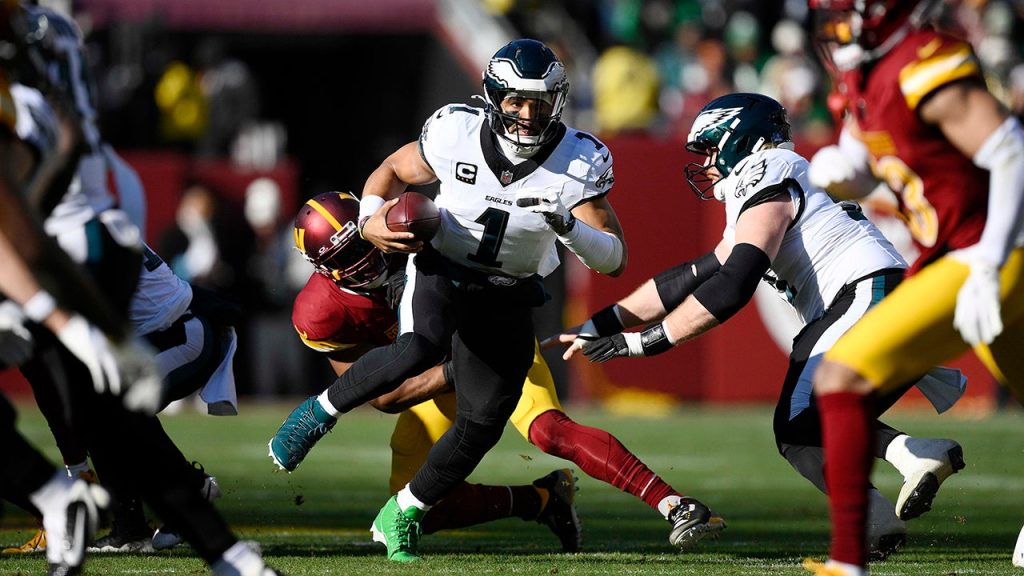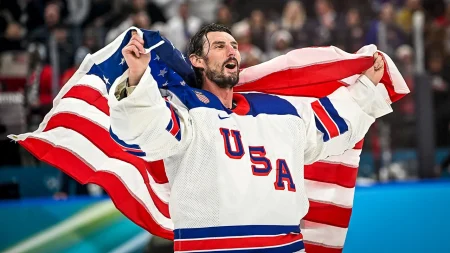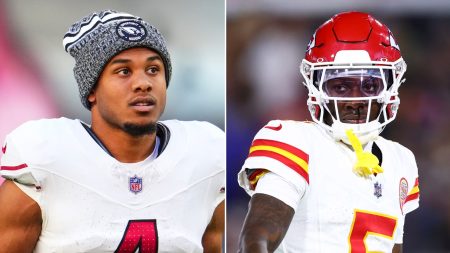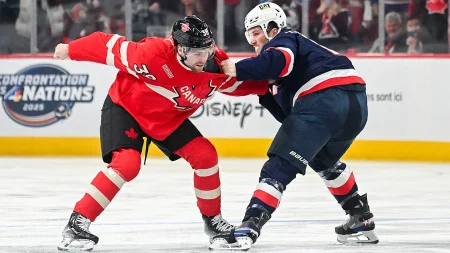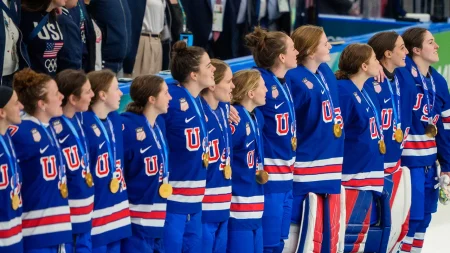Paragraph 1: The Incident and Initial Response
During the first quarter of the pivotal Week 17 clash between the Philadelphia Eagles and the Washington Commanders, a concerning incident unfolded that would drastically alter the course of the game. Eagles quarterback Jalen Hurts, the dynamic leader of their offense, found himself scrambling on a crucial second-and-20 play. His 13-yard run, while promising, ended abruptly with a jarring tackle by Washington linebacker Frankie Luvu. The impact of the tackle caused Hurts’ head to slam against the unforgiving turf, immediately raising concerns about a potential head injury. Medical personnel swiftly attended to the fallen quarterback, conducting an initial evaluation on the sideline before escorting him to the medical tent for further assessment.
Paragraph 2: Diagnosis and Replacement
Following the on-field evaluation, the gravity of Hurts’ injury became apparent. He was taken to the locker room for a more thorough examination, and shortly after, the Eagles officially announced that he had suffered a concussion and would be unable to return to the game. This news sent ripples of concern throughout the Eagles’ fanbase and coaching staff, as Hurts’ presence on the field is pivotal to their offensive strategy. With their starting quarterback sidelined, the Eagles turned to their backup, Kenny Pickett, a former Pittsburgh Steelers quarterback acquired through a trade in March. Pickett faced the daunting task of stepping into Hurts’ shoes and leading the offense against a determined Commanders defense.
Paragraph 3: Pickett’s Performance and First-Half Summary
Despite the pressure of the unexpected circumstances, Kenny Pickett exhibited composure and resilience in his first appearance as an Eagle. He stepped onto the field and seamlessly integrated into the Eagles’ offensive rhythm, effectively commanding the drive that Hurts had initiated. Pickett’s performance culminated in a decisive four-yard touchdown pass to star receiver A.J. Brown, further solidifying the Eagles’ lead. At halftime, the Eagles held a 21-14 advantage over the Commanders, a testament to the team’s adaptability and depth. The first half underscored the unpredictable nature of the NFL, where injuries can force teams to adjust their strategies and rely on their backup players to perform at a high level.
Paragraph 4: The Significance of Hurts’ Absence
Jalen Hurts’ absence reverberated throughout the game, highlighting his importance to the Eagles’ overall success. Before exiting the game, Hurts had managed to complete only one pass for 11 yards but had showcased his rushing prowess with 41 yards on the ground. His dual-threat ability as both a passer and a runner is a cornerstone of the Eagles’ offensive strategy, and his absence created a noticeable void. The Eagles were forced to adjust their game plan to accommodate Pickett’s strengths, relying more on their established running game and a more conservative passing attack.
Paragraph 5: The Broader Implications
The concussion suffered by Jalen Hurts brought the crucial topic of player safety in the NFL back into the spotlight. Concussions are a serious concern in professional football, and the league has implemented protocols to assess and manage head injuries. The incident emphasized the inherent risks associated with the high-impact nature of the sport and the importance of prioritizing player well-being. The Eagles’ decision to rule out Hurts, even with the stakes of the game being high, demonstrated their commitment to safeguarding their players’ health. The long-term implications of Hurts’ concussion remained uncertain, adding a layer of anxiety for the Eagles as they navigated the final stretch of the regular season with playoff aspirations on the line.
Paragraph 6: Looking Ahead
The incident underscored the importance of having a capable backup quarterback, a role that Kenny Pickett demonstrated he could effectively fulfill. While the Eagles rallied around Pickett, the uncertainty surrounding Hurts’ return cast a shadow over their future prospects. The team faced the challenge of balancing their playoff aspirations with the need to prioritize Hurts’ long-term health. The Eagles’ medical staff faced the task of carefully monitoring Hurts’ recovery, ensuring he adhered to concussion protocols and received appropriate treatment before returning to the field. The incident served as a stark reminder of the fragility of a football season and the constant adjustments teams must make to navigate unforeseen circumstances.





